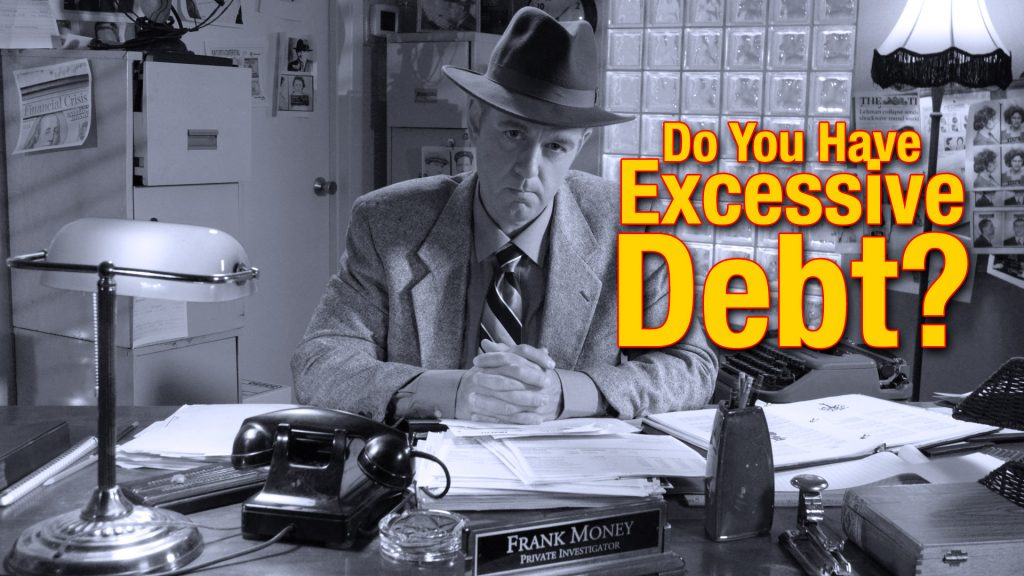 Frank Money here – your very effective money detective….
Frank Money here – your very effective money detective….
If you have excessive debt, you should take a deep breath and realize you do have options.
Millennials in general have the lowest credit score and most problems managing their debt, compared to prior generations. But the good news is you have the lowest number of credit cards and lowest debt total compared to other generations.
However, the bad news is that you use credit cards a lot, and make a lot of late payments. Late payments mean lower credit scores.
Additionally, millennials tend to use costly alternative financial services, such as auto title loans, payday loans, pawnshops, rent-to-own loans and tax-refund advances.
Here are some steps you can do to help you get control of excessive debt:
1 – For credit cards, get a lower credit card interest rate as soon as you can – Call up your credit card company and ask for a lower rate.
2 – If you can’t make the minimum payments on time, call your credit card company and work out a payment plan.
3 – Allocate a larger portion of your income to reduce debt. This will be painful, but over time it will work.
4 – Limit your spending. If you don;t have a budget plan in place, now is the time. Limit your spending to only the essentials, and make paying off your debt the number one priority.
5 – Motivate yourself. Reach out to friends or relatives who have been through similar problems. This is a process, and it helps to have support during those low times.
Need more help? Then why not reach out to the NFCC (National Foundation for Credit Counseling – the nations largest and longest-serving non-profit financial counseling organization.
http://www.nfcc.org/
So don’t fret the debt – instead take some steps to help yourself and sleep easier.
 OK, you need to get around. You need some wheels. But you don’t have a lot of Simoleons…er, Bucks…
OK, you need to get around. You need some wheels. But you don’t have a lot of Simoleons…er, Bucks…
 Frank Money here – your very effective money detective….
Frank Money here – your very effective money detective…. You really should apply good consumer skills to your purchase decisions. How so you say?
You really should apply good consumer skills to your purchase decisions. How so you say? We’ve all heard and read a thousand times how we should save on a regular basis and the younger you start the more we’ll have when getting closer to retirement. But as sure as the sun rises there will always be something that happens in your life that will make it difficult for you to part with your money to put into savings. That’s why every paycheck you should have a set portion of your salary automatically deposited into your savings account.
We’ve all heard and read a thousand times how we should save on a regular basis and the younger you start the more we’ll have when getting closer to retirement. But as sure as the sun rises there will always be something that happens in your life that will make it difficult for you to part with your money to put into savings. That’s why every paycheck you should have a set portion of your salary automatically deposited into your savings account. Today’s secret word –
Today’s secret word –  OK Frank Money here, your very effective money detective – Listen up! We need to know the R-O-I of that higher education your pursuing?
OK Frank Money here, your very effective money detective – Listen up! We need to know the R-O-I of that higher education your pursuing?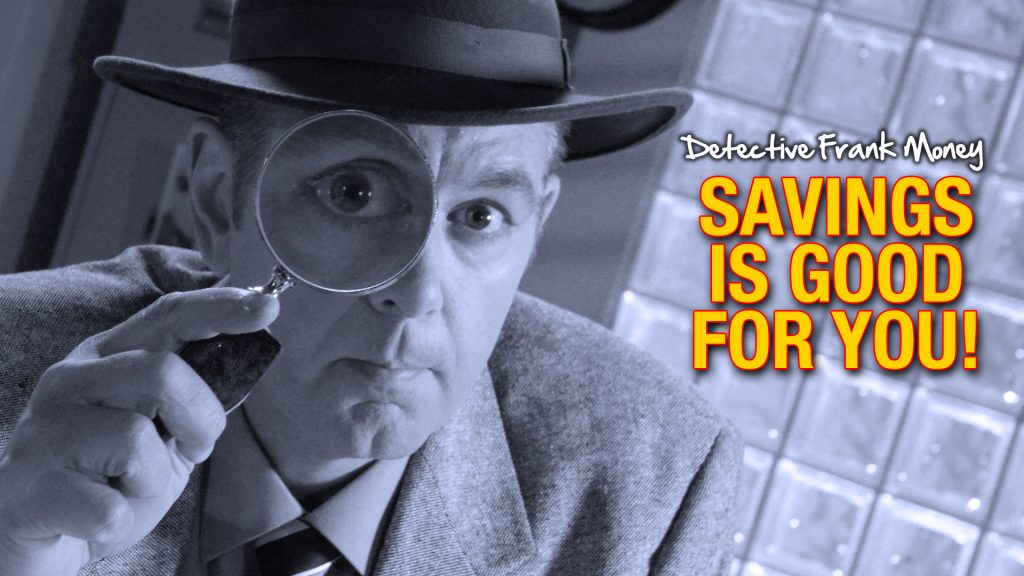 I’m Frank Money, and I wanna help you investigate everything about money! For example, let’s investigate savings. It doesn’t take much detective work to understand that savings is good for you!
I’m Frank Money, and I wanna help you investigate everything about money! For example, let’s investigate savings. It doesn’t take much detective work to understand that savings is good for you!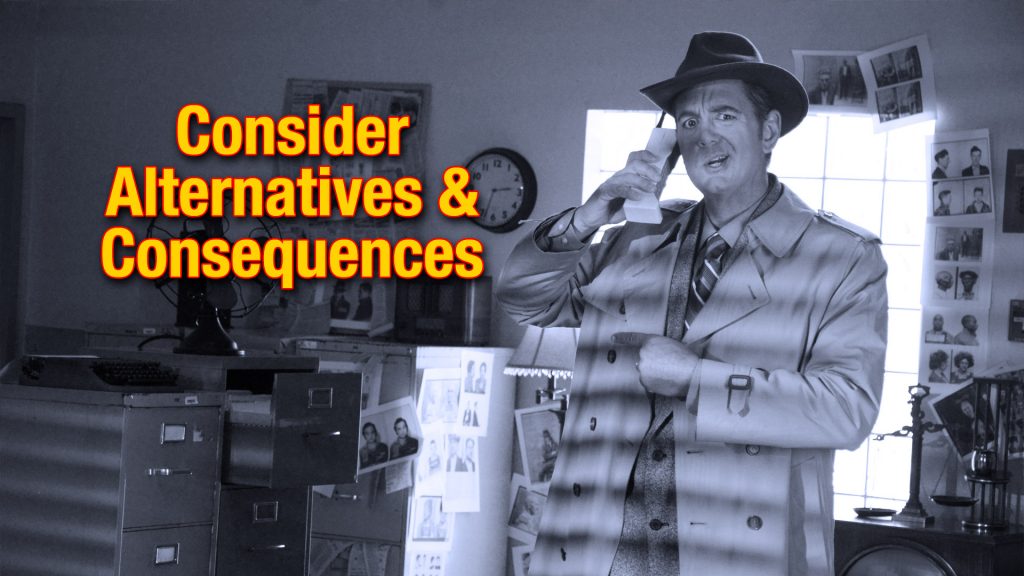 How many times have you passed by an electronics store and saw that X-Box you always wanted was finally on sale or the newest smart phone has hit the market? Temptations are thrown at us everyday in many different forms of ads. They know how to get your attention.
How many times have you passed by an electronics store and saw that X-Box you always wanted was finally on sale or the newest smart phone has hit the market? Temptations are thrown at us everyday in many different forms of ads. They know how to get your attention.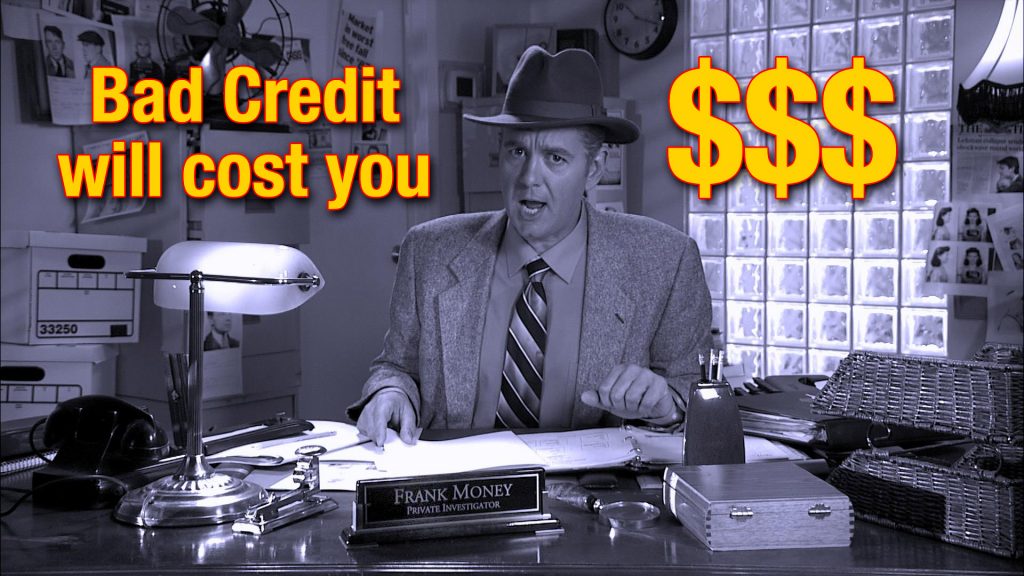 Frank Money here, your financial detective trying to save you money. Ok, listen up all you financial hotdogs out there who don’t pay attention to their credit scores. I’m about to give a lesson in world of hard knocks. Let’s cut right to the chase, bad credit will cost you money. If you’re planning to purchase large ticket items like a mortgage, car loan or even another credit card, you’re going to pay a lot more.
Frank Money here, your financial detective trying to save you money. Ok, listen up all you financial hotdogs out there who don’t pay attention to their credit scores. I’m about to give a lesson in world of hard knocks. Let’s cut right to the chase, bad credit will cost you money. If you’re planning to purchase large ticket items like a mortgage, car loan or even another credit card, you’re going to pay a lot more.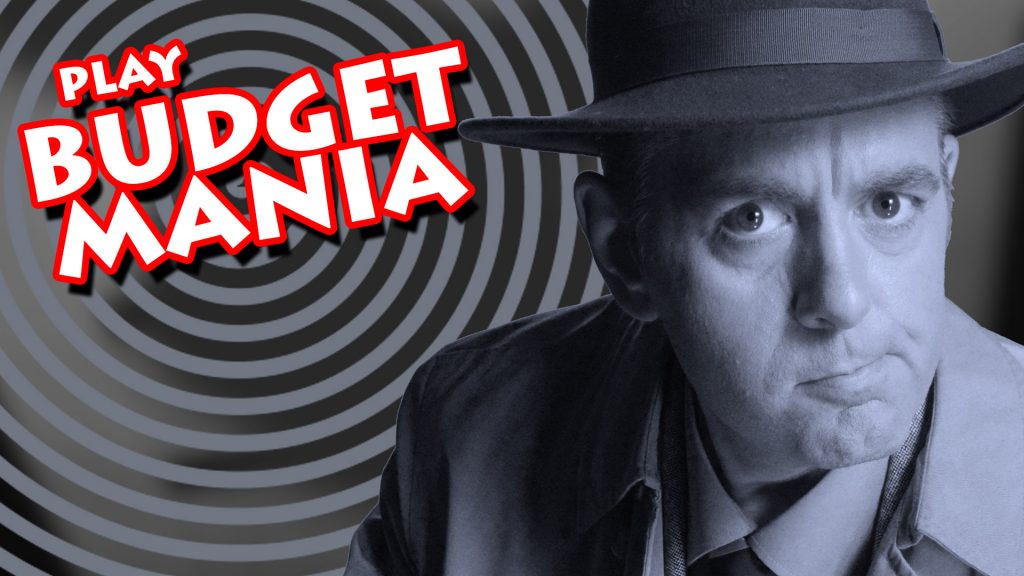 Frank Money here – I find that
Frank Money here – I find that